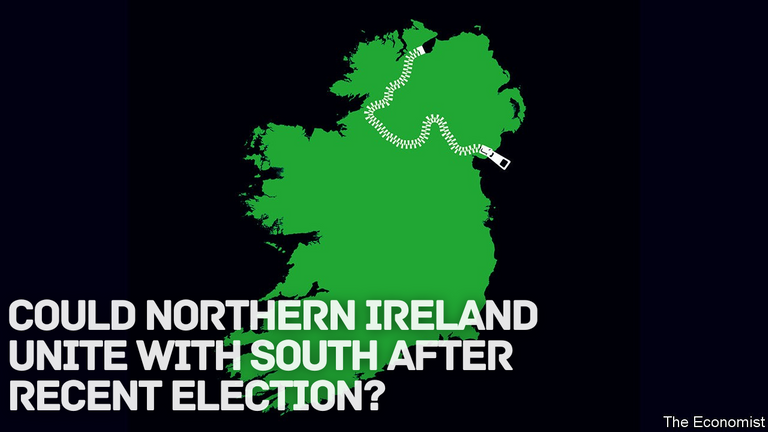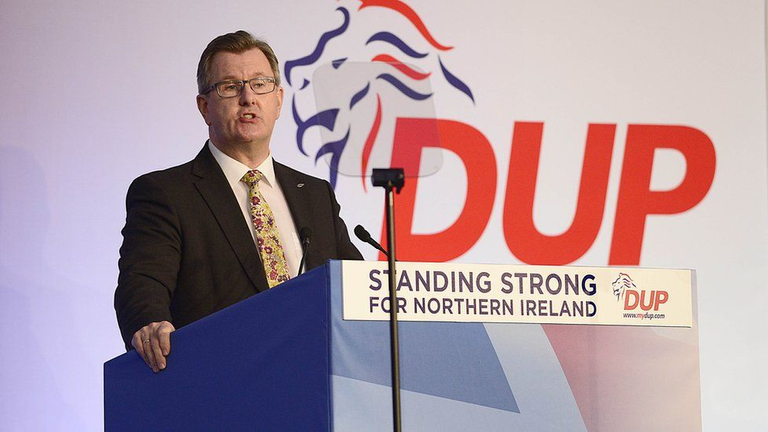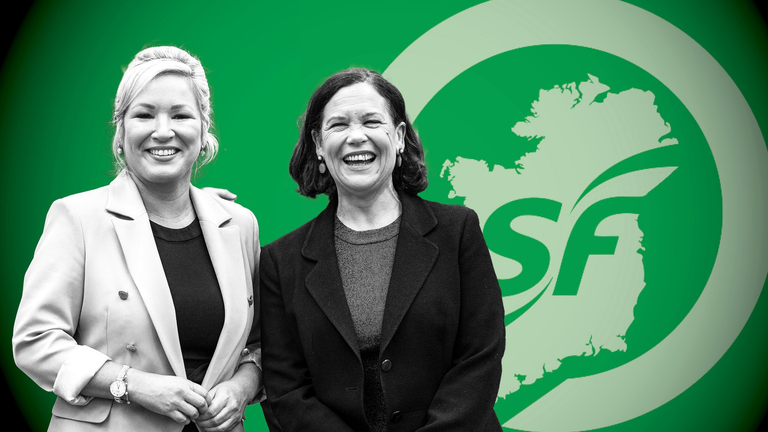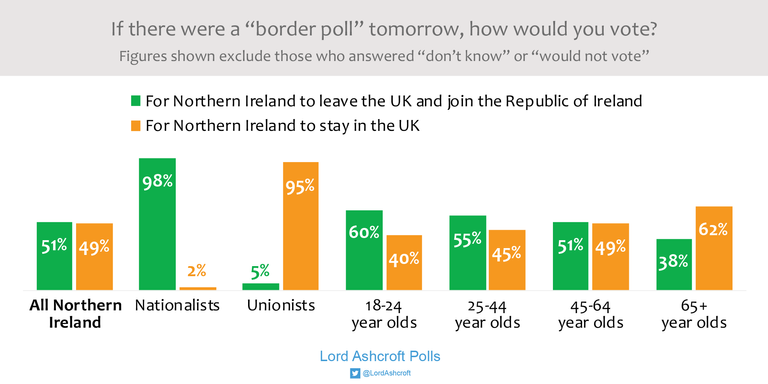
On Thursday, the UK held two sets of elections: voters in England, Scotland, and Wales went to the polls for local elections, while voters in Northern Ireland elected a new regional assembly. In this article, we're going to be looking at the historic election in Northern Ireland where Shin Fein won a plurality of votes and seats and asking whether this could open the door to a united island.
This northern Irish election has been a long time coming since the last northern Irish elections in 2017. The northern Irish assembly has spent most of its time in dysfunction. It took until January 2020 for Shin Fein and the DUP, the two largest parties, to agree on a power-sharing arrangement, which the DUP promptly abandoned in February this year, apparently in protest at the Northern Ireland protocol. For those who are unaware, unionist parties in Northern Ireland, particularly the DUP, are strongly opposed to the Northern Ireland Protocol, an addendum to Boris Johnson's Brexit deal that was supposed to replace Theresa May's backstop. It is essentially because the Northern Ireland protocol creates a more visible regulatory border between Great Britain and Northern Ireland, which unionists don't like because, well, A) Boris Johnson explicitly promised them it wouldn't happen and B) they see it as a threat between Northern Ireland and Great Britain.

Anyway, the DUP has spent the last few years or so tearing themselves apart over the protocol. Arlene Foster was forced to resign in April of last year and her successor, Edwin Putz, was ousted after just 21 days in office for agreeing to some controversial Irish language provisions as part of his new power-sharing arrangements. Sir Jeffrey Donaldson's successor, Sir Peter Putz's successor, has been in charge for the best part of 10 months, but he's been unable to convince the government to ditch the Northern Ireland protocol via article 16 despite attempting to unilaterally suspend checks across the Irish Sea, which would have probably been illegal. Anyway, the protocol also hurts unionists' electoral prospects. Hardcore unionists who hate the protocol have decided they don't trust the DUP to get rid of it, so they have apparently lent their support to the more hardcore unionists like the TUV, thereby splitting the unionist vote.
Their myopic focus on protocol and unpalatable social conservatism has put off more moderate voters who have apparently moved towards the non-sectarian alliance party and Shin Fein Island's Big Republican Party, who have mostly avoided talking about republicanism and instead focused their campaign on bread and butter issues like housing, health care and the cost of living crisis. For the past few months, polling consistently put Shin Fein ahead of all the other unionist parties. The latest poll from Tuesday put Shin Fein at 26.6 percent, nearly nine points ahead of the DUP and alliance, who were both at 18.2 percent. For context, in the 2017 election, the DUP came in first place with 28.1% of the vote, which translates into 28 seats. Shin Fein came second with 27.9% and 27 seats, and the alliance came in fifth with just 9% and eight seats.

It's worth mentioning here that the northern Irish elections used a single transferable vote system with 18 five-seat multi-member districts for a total of 90 seats. Before we get into the results, we should say that we're writing this on Saturday morning, and only about half the seats have been distributed. However, the outcome is pretty clear, as predicted by the polls: Shin Fein won the most first preference votes and are on track to win a plurality of seats in Northern Ireland. In the end, they actually outperformed the polls with 29 percent of first preference votes, while the DUP came in second with about 21 and the alliance came in third with 13.5%. Turnout was 63.6 percent, slightly lower than the 64.8 percent who voted in 2017.
This is pretty huge news. Shin Fein's victory means Northern Ireland will have a republican first minister for the first time in its history. While the first minister has no more legal powers than the deputy first minister, this result will nonetheless have a massive symbolic and psychological effect on both unionists and republicans. So does this mean that Irish reunification is imminent? After all, the two largest parties in the Republic of Ireland are also both republican, which means there were republican pluralities on both sides of the border. Shin Fein's success in Northern Ireland was achieved despite, rather than because of, their republicanism. Deliberately avoided talking too much about reunification, and polling suggests that support for reunification in Northern Ireland has actually fallen slightly from its 2021 high, when it was nearly 50 percent.

Although recent polling suggests that support for reunification has since fallen to about 40%, it's worth saying that 40% is still significantly higher than what it used to be. However, while reunification might not happen in the immediate future, eventual reunification does now look more likely. Support for reunification has steadily increased since Brexit, and even if they don't support reunification, a majority of northern Irish voters support a referendum on the issue. A referendum has become a real possibility with Shin Fein in power.